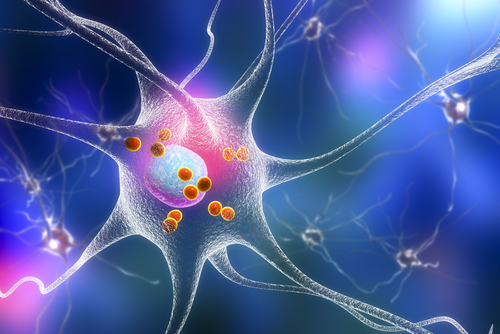Excessive Calcium Levels in Brain May Play Role in Parkinson’s Disease

Excessive levels of calcium in the brain may trigger the formation of toxic protein clumps that typify Parkinson’s disease. This finding could be a new treatment target for researchers working to understand how and why people develop the neurodegenerative disease.
The research, “C-terminal calcium binding of α-synuclein modulates synaptic vesicle interaction,” was published in the journal Nature Communications.
Parkinson’s patients typically exhibit Lewy bodies — protein clumps made of alpha-synuclein proteins that aggregate and form filament-like structures — in the brain.
The physiological function of alpha-synuclein has been the focus of intensive research, though with uncertain results. Studies have indicated it is involved in neuronal communication, but its precise mechanisms of action remain unknown.
“Alpha-synuclein is a very small protein with very little structure, and it needs to interact with other proteins or structures in order to become functional, which has made it difficult to study,” the study’s senior author, Gabriele Kaminski Schierle, PhD, said in a press release. Schierle is in the Department of Chemical Engineering and Biotechnology at the University of Cambridge,
The team used super-resolution microscopy methodologies to study small, isolated synaptic vesicles located in the tips of nerve cells that store the neurotransmitters that are released upon communication between neurons.
Calcium plays a key role in the regulation of nerve cell communication. The researchers observed that following an increase in calcium levels, alpha-synuclein binds to synaptic vesicles, causing the vesicles to come together.
“This is the first time we’ve seen that calcium influences the way alpha-synuclein interacts with synaptic vesicles,” said Janin Lautenschlager, PhD, the study’s first author. “We think that alpha-synuclein is almost like a calcium sensor. In the presence of calcium, it changes its structure and how it interacts with its environment, which is likely very important for its normal function.”
There needs to be a physiological balance of calcium and alpha-synuclein in nerve cells. If this balance is disrupted, “the balance is tipped and aggregation begins, leading to Parkinson’s disease,” said co-first author Amberley Stephens, PhD.
The factors that may cause this imbalance include a genetic doubling of alpha-synuclein levels, age-related slowing of protein breakdown, elevation of calcium levels in neurons sensitive to Parkinson’s, and/or a lack of calcium buffering capacity in these neurons.
“Understanding the … role of alpha-synuclein in physiological or pathological processes may impact strongly on the development of new therapeutics for [Parkinson’s]” the investigators wrote.
Ongoing clinical trials in Parkinson’s patients are evaluating the clinical benefit of antibodies that target the calcium-sensitive region of alpha-synuclein (NCT03100149, currently recruiting up to 300 participants), and of calcium channel blockers (NCT02168842), which are used in treating heart diseases.






